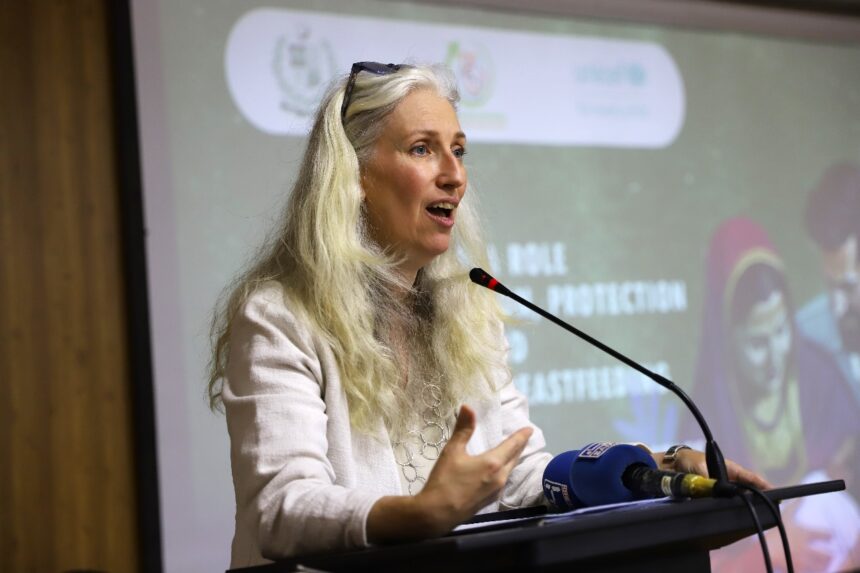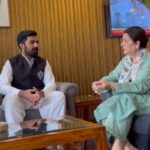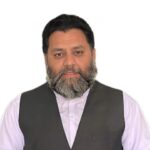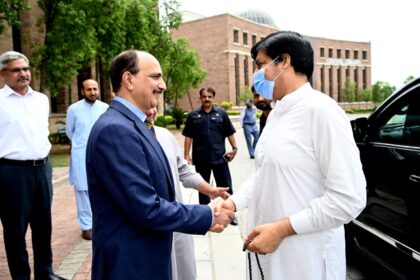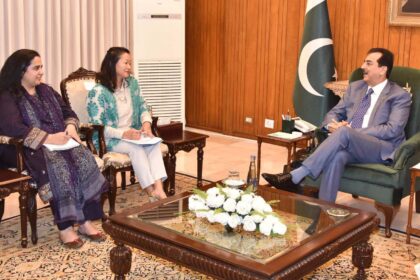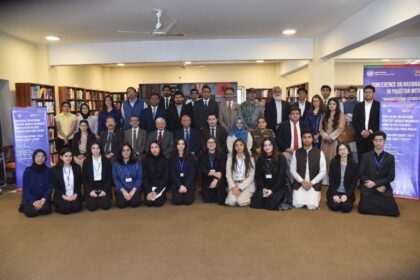Pakistan’s Media Urged to Champion Breastfeeding as a National Health and Equality Priority
ISLAMABAD: UNICEF Representative in Pakistan, Pernille Ironside, delivered an impassioned keynote speech calling on the country’s media to play a transformative role in normalizing breastfeeding and countering the harmful influence of the formula milk industry. Speaking at the Health Services Academy in Islamabad during a national dialogue on the “Role of Media in the Promotion, Protection and Support of Breastfeeding in Pakistan,” Ironside described breastfeeding as a foundation of national health, economic strength, and gender equality.
Introducing herself “as a mother and a breastfeeding champion,” Ironside said every person, not just mothers, must understand the immense value of breastfeeding to the nation’s future. She called it a collective social responsibility and urged that “breastfeeding be treasured so that no drop goes to waste.” She emphasized that breastfeeding is not only a personal act but a public health and economic necessity that deserves national commitment.
Ironside expressed concern that fewer than half of infants under six months in Pakistan are exclusively breastfed, a rate far below the 60 percent target set by the World Health Assembly. She warned that this shortfall contributes to preventable infant deaths, malnutrition, and major economic losses. “Breast milk is free—it’s the elixir of life,” she said, noting that each dollar invested in breastfeeding yields a return of thirty-five dollars through improved health outcomes and productivity.
Highlighting the progress made in Sindh province through updated breastfeeding legislation, Ironside urged for similar efforts at the national level. She stressed that the evidence supporting breastfeeding is “irrefutable,” explaining that it saves lives, strengthens the mother-child bond, enhances brain development, and benefits families, communities, and the economy.
Ironside also discussed the social barriers that prevent mothers from breastfeeding, such as lack of maternity protection, unsupportive workplaces, gender inequality, and misconceptions surrounding breast-milk substitutes. She condemned the growing trend among wealthy families who view formula milk as a symbol of social status, calling it a “dangerous misconception.” She emphasized that breastfeeding should be seen as an act of empowerment and equality, supported by fathers, families, and communities through shared caregiving and the dismantling of outdated gender roles.
Addressing journalists directly, Ironside said the media’s role in protecting and promoting breastfeeding can be truly transformative. She urged news outlets to create culturally sensitive and factual content in local languages that promotes breastfeeding as the norm. “Media can challenge structural barriers, expose unethical marketing of formula milk, and ensure the enforcement of laws protecting breastfeeding,” she said. Ironside added that journalists should portray breastfeeding as part of gender equality, highlighting stories of working mothers, supportive fathers, and employers who accommodate maternal rights.
Drawing from her personal experience, Ironside shared that she continued to breastfeed her child for more than two years while working full-time, describing it as challenging but deeply rewarding. She encouraged the media to celebrate such stories to inspire mothers and strengthen social acceptance of breastfeeding.
In her closing remarks, Ironside urged all sectors of society to unite against the formula milk industry’s unethical marketing practices that undermine breastfeeding in Pakistan. “Let’s make sure every child in Pakistan not only survives but thrives, beginning with the first drops of this magical elixir of breast milk,” she said. She called on journalists to become champions of breastfeeding, nutrition, and women’s rights, reminding them that their words have the power to shape healthier generations. “This is not just about survival,” she concluded, “it is about dignity, equality, and the future of Pakistan’s children.”




